Voices Through the Years
Lauren Cubellis, 2020-2021: My experience as a Max Kade Postdoctoral Fellow in the Berlin Program for Advanced German and European Studies has been an incredibly enriching one, despite the struggles faced this year due to the Covid-19 pandemic. In fact, my participation in the Berlin Program helped give grounding, structure, and comradery to what was an otherwise very challenging year, for all persons, but especially in academic life, where the regular rhythms of seeing colleagues in classrooms and conferences were put indefinitely on hold. Meeting with the Berlin Program biweekly during this academic year gave me a feeling of academic community that was very much needed, and that helped me to make progress on the revision of my dissertation and my goals for future research.
Carolyn Taratko, 2019-2020: The global interruptions (due to the COVID-19 crisis, note from the Berlin Program) and attendant anxieties, compounded by distance from friends and family, made it difficult to work in the early phases of the crisis. Eventually, I was able to settle into a rhythm. However, the widespread closures prevented me from undertaking much of my planned archival work. In the end, I channeled my time this spring into advancing my book proposal. I began revisiting secondary literature to inform my book proposal, which I hope to submit by September. Additionally, working on two book reviews on books adjacent to my fields has helped me to expand my reach as a historian. These (small) tasks gave me a sense of structure during the lockdown months.
Jason Ciaccio, 2018–2019: In the Berlin Program you have the opportunity to work with excellent colleagues from various fields, and one of the most rewarding challenges was being able to meaningfully engage the work of colleagues whose areas of research were sometimes far removed from my own. In that respect it was an excellent opportunity to become a more well-rounded intellectual, and excellent training for becoming a more senior scholar, when the ability to reach across disciplinary boundaries is valued more highly than proving expertise in some narrow niche.
Maureen Gallagher, 2017–2018: Participating in the Berlin Program has been an incredibly rewarding experience. It was a luxury to be able to spend a year in Berlin working on my book project, free of teaching responsibilities. I found myself looking forward to the bi-weekly colloquia, as it was a supportive and lively academic community. Because I am a postdoc, I was among the first to present my research, and it was a great practical exercise in talking across disciplines and I got very useful feedback. We had an excellent cohort that complemented each other in terms of research and spent quite a bit of time together outside of the colloquia.
Jake Fraser, 2016–2017: My time in Berlin and as a Fellow of the Berlin Program was enjoyable, productive and encouraging. In addition to making significant progress on my own dissertation, I also profited from the ability to take part in a number of academic seminars, colloquia, and conferences, to meet with German professors and students, and to enjoy the intellectual and cultural offerings of Berlin—which are not, I think, insignificant for one’s Bildung!
Tara Hottman, 2015–2016: My stay this year in Berlin was one of the most productive times in my graduate student career. I was able to devote my full attention to my research and writing my dissertation in a way that wasn’t pos-sible, or at least didn’t always feel possible, at my home university. Being in the center of things in Berlin meant that I found great re-sources and archives here that I didn’t anticipate would be available to me and I was able to spend a lot of time writing this year so that I am in a good position when I start the job market process this fall.
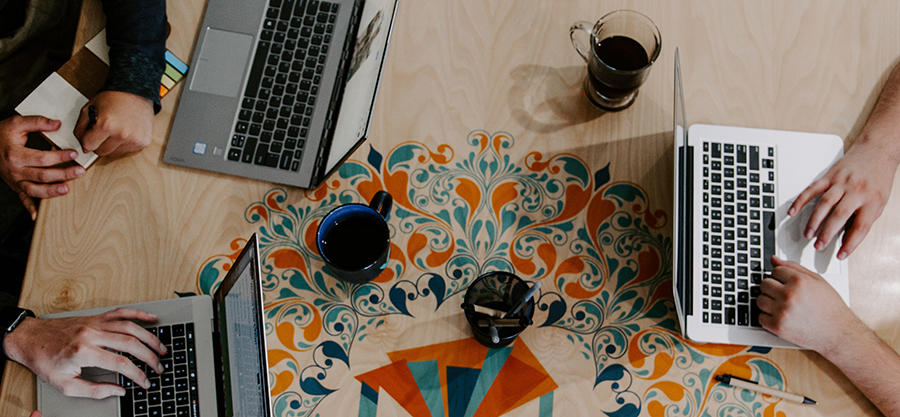
Photo by Kaleidico on Unsplash
Arthur Salvo, 2014–2015: Engaging with projects from different disciplines, learning about the specific questions they formulate and the methodologies they employ helped me become a better thinker. On the one hand, my experience in the colloquium reconfirmed my own training in literary studies and clarified the specific questions that define my field and its contributions. At the same time, I came to appreciate other modes of understanding and learned to think about my project from different disciplinary vantage points. Conversations with the other fellows—both in and outside of the colloquium—were, for me, the most rewarding part of the program.
Jennifer Rodgers, 2013–2014: While you’re in Berlin, I strongly recommend engaging with German colleagues in your field. Beyond the Freie and the Humboldt, there are institutions such as the Zentrum für Zeithistorische Forschung in Potsdam and Institut für Zeitgeschichte that have very engaging colloquia and events. This will give you a chance to expand your network and get a handle on the intellectual landscape. Often, these meetings turn into invitations to present your work in other forums, which I have found extremely helpful in conceptualizing my project and for my vita.
Matthew Valji, 2012–2013: The Berlin Program colloquium itself will be quite helpful to you in a number of ways. First, it is a great chance to practice your German in a friendly and accepting environment. Second, it is both useful and intriguing to hear work presented on topics sometimes far-flung from your own research. Third, it gives you a rare opportunity to receive constructive feedback from scholars in a variety of fields who have actually read your work.

Photo by Green Chameleon on Unsplash
Amy Edwards, 2011–2012: The Berlin Program biweekly colloquium was both challenging and useful. It forced me to think about how scholars from outside my academic field think about sources and methodology, and how to present my research to someone unfamiliar with my discipline. But this challenge is an important one, because it required me to focus on the main questions and concerns of my project, examine what sources I had and still needed, and to start writing while in the midst of research (which was an overwhelming task at first, admittedly).
Jake Smith, 2010–2011: I also immensely enjoyed having the opportunity to interact with postdocs in the program. Not only did our resident postdoctoral scholars provide academic insight during the Colloquium, they also offered practical advice regarding the latter phases of graduate school. I highly encourage everyone to make use of the knowledge and experience of the postdoctoral Stipendiaten.
Brían Hanrahan, 2009–2010: I found the colloquium to be very useful, both in presenting my own research to an interdisciplinary audience and in gaining insights into other disciplinary approaches. The discussion was often lively and people brought perspectives which would never have occurred to me. It definitely worked best when the presenter made a strong effort to present the material in an imaginative and accessible way, and when they contextualized what they were doing in terms of broader questions.

Photo by Marvin Meyer on Unsplash
Melissa Kravetz, 2008–2009: I found the Berlin Program seminar to be extremely helpful, especially because it forces you to stop doing research and reading for a bit of time about 5-7 months after you arrive and forces you to write something down. This was extremely helpful for me, as I was immersed in research throughout the fall, and probably would have continued along this path, but the Berlin Program seminar forced me to sit down and try to make sense of what I had found. It’s also great because it gives you an opportunity to present your work (perhaps for the first time) to your peers in a relaxed environment. The feedback from an interdisciplinary group is not always so helpful to your specific project, but it is important to learn to present to this type of group. I found that sometimes we were all talking past each other in seminar, but it was important to define the basics of the projects to people who are way outside your field. Also, the fact that it was in German was good because it really helps to develop your academic vocabulary, especially for your field. It’s also great to have something written when you leave Berlin. I was able to present my work two other times and also felt like I had accomplished a lot more than I came for by writing something. Lastly, the seminar is nice because it creates an academic and social group here in Berlin, and I’ve been grateful the entire year for both.
Goekce Yurdakul, 2007–2008: I have benefited from the Berlin Program colloquia in three ways: First, the papers presented in the colloquia help me to learn more about German society and history. Second, it helped to discuss my own work in an interdisciplinary manner. This is particularly important if we, as scholars, would like our work to be read and understood by the scholars of different disciplines. Third, Berlin program fellows exchange scholarly information, so keeping in touch with them is an important source in order to know about different events and conferences in Berlin. I was particularly lucky to have a few fellows who work on migration issues. We organized and proposed a panel together to the German Studies Association’s Conference.
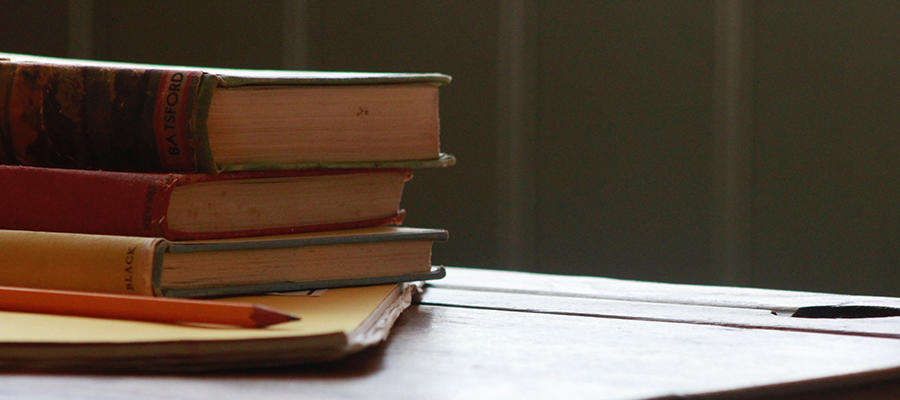
Photo by Robin Worrall on Unsplash
Christina Gerhardt, 2006–2007: I found the Berlin Program a great interdisciplinary forum in which to think about the different expectations associated with research methods and argumentation strategies in various disciplines. Discussing my work, which—since I am in German Studies—is based on textual analysis, in the Berlin Program was a very interesting and rewarding experience given that I was presenting it mainly to historians, who have different expectations and methods. It is invaluable to learn how to present work to people who are not specialists in your area of inquiry – be it the topic or era – and perhaps not even in your discipline. It prepares you well for a dissertation defense, if you have to do one, for future grant applications, for the job market and interviews. The tenor of the Berlin Program can shift from semester to semester, as some fellows finish and others begin their grant, as professors mentoring the program come and go.
Matthew Miller, 2005–2006: Firstly, the Berlin Program is a great base from which to launch into academic life. A unique and outstanding feature of the Berlin Program is the bi-weekly colloquium held during the semesters. Although other students lamented its limitations, citing the “difficulties of inter-disciplinary communication,” I found it exciting and rewarding to learn about the other projects, in particular with regards to how others are going about their dissertation work. Moreover, the exchange of ideas was often superb and the atmosphere was often solidaire, as opposed to competitive, which made it a pleasant space in which to present one’s own work. The Berlin Program also organized tours and other cultural events that greatly enriched my experience of the city.
Veronika Fuechtner, 2004–2005: I had a wonderful and productive year, and my experience of the Berlin program was very positive.
April Eisman, 2003–2004: The great advantage of the Berlin Program over other fellowships is the seminar. It is a great opportunity to meet other scholars, as well as to hear what others in the broad field of German studies—be that history, sociology, art history, etc.—are working on. It is also really helpful to hear that others are dealing with the same issues—as doctoral students and/or fellow Americans in Berlin. (And when the new group of students comes in asking all the same questions you asked six months before, you really see how much you’ve learned!) As a result of the Berlin Program, I really feel like I’m part of an academic community now and have established not only great contacts in the field but have also made a few new friends along the way.
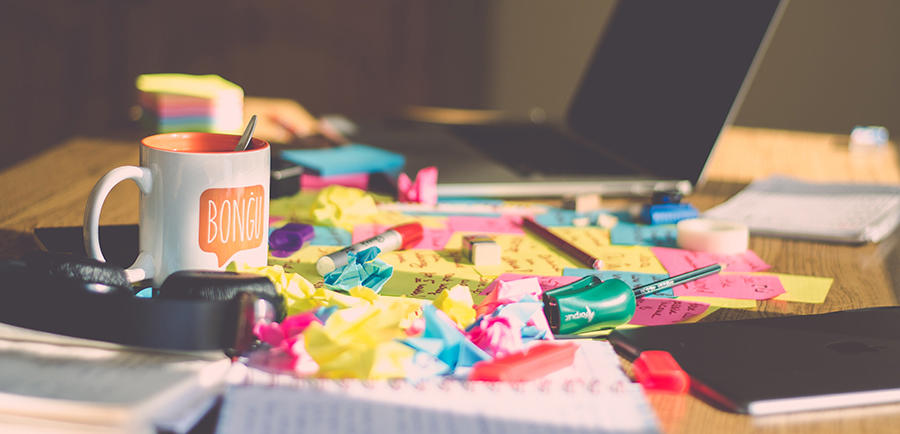
Photo by Ferenc Horvath on Unsplash
Brian Puaca, 2002–2003: The seminar is one thing that really sets this grant apart from some of the other funding opportunities. It is really a great opportunity to see the work of others and collect ideas and suggestions about your own. The atmosphere in seminar is a supportive one and clearly designed to help you sharpen your ideas and expand your thinking. I’m really glad that I had to put together a paper during my time here. It was a good deal of work, but it also meant that I had to think some things out and read through my notes and copies before I went home…It is also nice to have a group of people with whom you have a connection. There have been other fellows working in the Landesarchiv at the same time as me, and we have had lunch, coffee, “cooling-off sessions,” etc. The seminar really functions as a kind of small community, which is definitely a plus
Levent Soysal, 2001–2002: Being in Europe also allowed me to attend the meetings of the European Association of Social Anthropologists in the summer of 2002 (I organized a workshop), as well as getting invitations to speak at ERCOMER (immigration studies center), the University of Utrecht, and at a Youth Conference held jointly by the University of Birmingham and University of Sheffield… Two other Berlin forums, Harvard University’s CES Berlin Dialogues and Einstein Forum, need mention as my conduits to the wider intellectual world within and outside Berlin (I was a speaker at CES panel on immigration and integration). Finally, House der Kulturen der Welt and Berlinale opened for me a window to the international art worlds.
Judd Stitziel, 1997–1998: Unlike many programs and seminars that claim to be interdisciplinary, the Berlin Program's biweekly colloquia truly fostered an intense dialog among a wide variety of disciplines in the humanities and social sciences. Rather than falling into the tendency to criticize others simply for not espousing a certain epistemology and methodology, my colleagues and the professors who led the seminar made every effort to understand each paper on its own terms and only then to offer insights from their respective disciplines… The Berlin Program's intellectual community and extremely strong and generous support allowed me to take full advantage of my time in Germany and to pack an extraordinary amount of research into a relatively short time. This not only accelerated the progress toward completion of my dissertation, but more importantly it gave me several valuable long-term professional and personal benefits. In addition to enabling me to conduct the research that led to several publications and job offers, the Berlin Program introduced me to several scholars and others in Berlin who have been and will continue to be key academic, professional, and personal contacts and friends. I have the highest praise for the Program and would be more than happy to help ensure its continued success in any way possible.
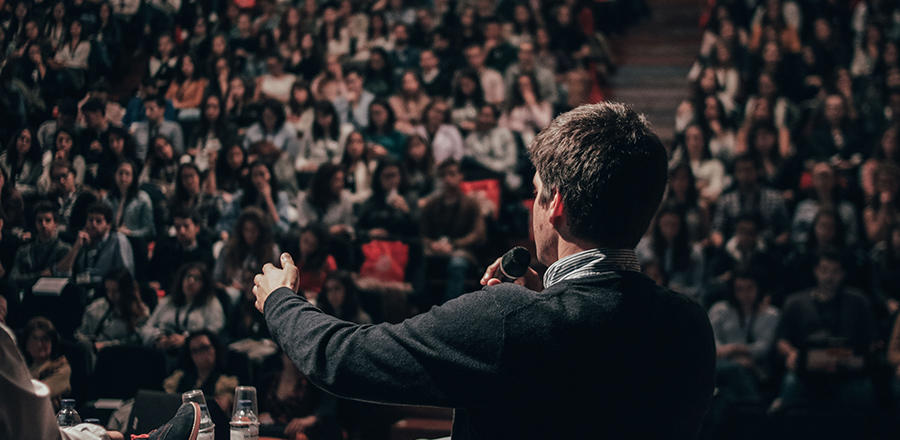
Photo by Miguel Henriques on Unsplash
Philip Gorski, 1995–1996: I have been in a number of overseas fellowship programs—Fulbright, DAAD, SSRC West Europe Program—and this was far and away the best. The key difference is that the Berlin Program gives you a real institutional location—a place to work, people who look after you, and a group of fellows who you can talk to
Mike Allen, 1994–1995: The Berlin Program fellowship has been instrumental to my current career. It 1) allowed me the resources to finish my dissertation research and writing. Without this grant, I would have had to spend this year in the United States, delaying the completion of my PhD until 1996. 2) The Berlin Program integrates its fellows into an international network of scholars in Germany and the Unites States. Through this program I met Peter Hayes and Ray Stokes, former fellows, who have aided me both as professionals and as friends. Through the program I also gave presentations at the Deutsches Museum upon the invitation of Dr. Wilhelm Fuessl and the director of its research institute, Dr. Helmuth Trischler; I gave a presentation at Dr. Hans Mommsen's Doktorandencolloquium; and I presented my work at the Institut für die Forschung des Nationalsozialismus, then under Dr. Ulrich Herbert, in Hamburg… In addition, the paper I presented in the Berlin Program seminar has now been accepted for publication by Central European History, and the comments of the German professors at that time, Dr. Kohli and Dr. Hausen, were instrumental in the revision process. In my opinion the presentation program of the Berlin Program is its most valuable asset.
Patricia Mazon, 1992–1993: Looking back on the grant three years later I can say that it really is the best research grant that an American can get in Berlin. The program provides an ideal combination of the resources of the FU and Berlin’s many libraries and archives along with the intimacy of a small group of researchers and their academic advisers, the Beirat. Both halves are absolutely essential. The primary research materials are what draw us all to Germany, but the Berlin Program gives us an academic community and a context to use when we are trying to make sense of all the information we have gathered. I think that the Program provides an excellent opportunity for the next generation of scholars to get to know one another and to learn from one another.
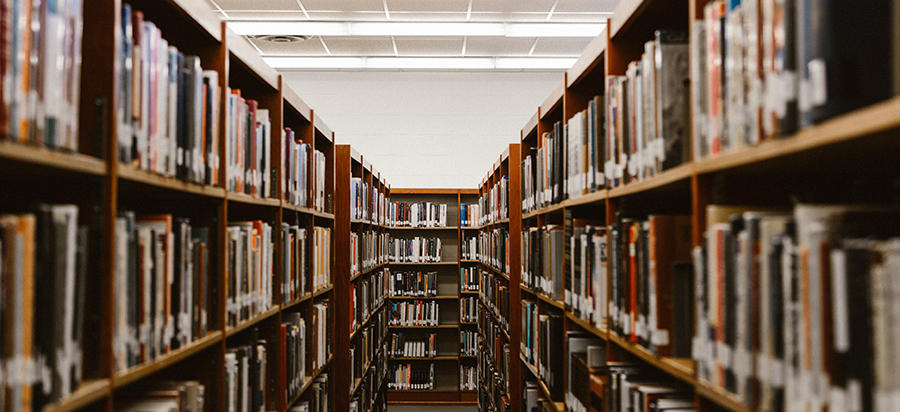
Photo by Priscilla du Preez on Unsplash
Hope Harrison, 1991–1992: The most important single thing in my career thus so far was my Berlin Program fellowship in Berlin from 1991–92 to use newly opened East German (and Russian) archives on Soviet-East-German relations leading up to the building of the Berlin wall in 1961. The grant enabled me to be one of the first scholars to use these archives. It has enabled me to become an expert on this topic. My work has already been cited by the German Enquete-Kommission, and I have been told that I will soon be asked to testify on what I know about the decision to build the wall—to testify to the Enquete-Kommission… While on the fellowship, I consulted archives from the former SED and the Stasi. I also interviewed former diplomats in Berlin…. Since the fellowship, I have returned to Berlin and Germany many times to use the archives and to give papers at conferences. My work—began on this grant—is now cited as one of the key works revising our understanding of the cold war.
William Lee Blackwood, 1992–1993: My tenure in the Berlin Program offered me the invaluable opportunity to engage in intensive archival research in five countries. The program is a strong attribute of Berlin. It puts the FU in the position to sponsor truly international research—research that serves the city’s reputation in North American academic circles very well indeed.
Carol Hager, 1991–1992: I have received grants from several other sources for my work in Germany, and the Berlin Program is widely and justifiably considered the cream of the crop. The Berlin Program seminar is, in my experience, an invaluable learning tool. One has only to consider the number of Fulbright and other fellows who ask permission to participate in the seminar to confirm its value and its uniqueness. The German faculty who participate are some of the top scholars in their fields. The fact that they are willing to devote such time to young American researchers speaks for both the quality of those Program Fellows and the interesting exchanges in the seminar. … I was particularly impressed with the interdisciplinary nature of the program. The Program does a real service in helping to break down disciplinary barriers at an early stage of the Fellows’ careers. The promotion of interdisciplinary thinking and writing is a service whose impact will be felt perhaps only much later but is nevertheless profound.
Yasemin Soysal, 1990–1991: My research was a comparative one, involving six European countries. The data collection required extensive logistical planning thus the assistance of many individuals located in crucial institutions. Being attached to the Berlin Program contributed significantly to my being able to access these crucial contacts. I was also able to develop some significant intellectual connections which then turned into productive collaborations.

Photo by Lubomyr Myronyuk on Unsplash
Yule Heibel, 1989–1990: The Berlin Program remains, to my mind, the most helpful and positive experience of my graduate student career. It gave me the confidence to get my dissertation researched and written. Unlike other grad students in my field who received year-long support from Harvard or the National Gallery in Washington, DC, who took much longer to finish (if they finished at all), I was part of a program that gave me a sense of academic community, seriousness, and professionalism.
Susan Crane, 1989–1990: I am continuing to mine fields of interest developed during my time in Berlin—I think I will refer back to it for the rest of my professional career. Being there as the Wall came down was an invaluable experience, and I'll always be grateful to the SSRC for sending me over there at the right time!
Daniel Mattern, 1988–1989: The Berlin Program experience remains one of the most interesting and formative experiences in my life... I also want to comment on the intellectual goals of the program, namely, to bring together scholars at varying levels and from different disciplines. I feel this has been extremely useful in my development as a historian; not only do I have a better sense of what scholars in other disciplines do but have worked with them on common problems and concerns and I expect to continue to do so.
John Borneman, 1987–1989: Without this grant I could not have completed my dissertation research. Based on this initial grant, I completed three books, which are now used widely in teaching and research on Berlin and Germany.
